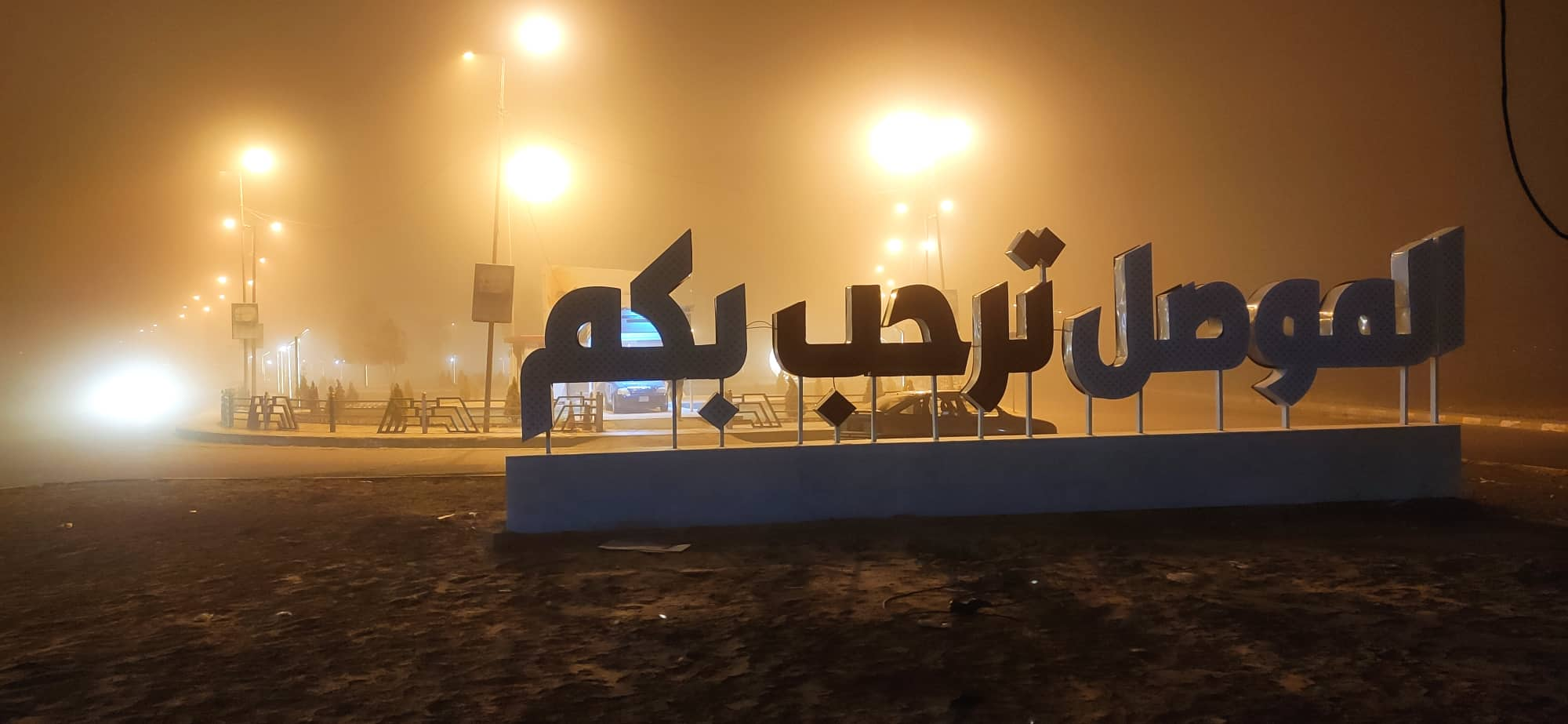Five people have died and 250 were hospitalized in the Salahaddin and Kirkuk due to heavy dust storms that shut airports in Erbil and Sulaymaniyah.
Five people died on Thursday in Tuz Khurmatu district of Salaheddin while tens were hospitalized in the northern oil-rich Kirkuk province as a result of dust storms.
A wave of dust and dust storms swept all Iraqi governorates since the dawn of Thursday, April 7, and its effects are still continuing, after which hundreds were transferred to hospitals.
The Department of Health in Kirkuk declared in a statement on Friday, April 8, that 123 people were transferred to the hospital and received the necessary treatment, indicating that the Kirkuk General Hospital received 58 cases.
A source in the Tuz Khurmatu District Health Department said, "As of 11 am this morning, Friday, 127 people were transferred to Tuz Khurmatu General Hospital, and five people died." Another 23 cases were in critical conditions.
The source, who asked not to be named because he was not authorized to speak the media, said, "Of these 127 cases, five died as a result of the dust storm, four of whom were suffering from chronic diseases such as asthma and heart disease. Besides, they were old."
The ages of four of the five people who died were over sixty, and the other was 43 years old.
"The health condition of 23 people was unstable, but currently only five people are in the hospital receiving the necessary care," the source anonymously added.
The multi-ethnic district of Duz Khurmatu, located 70 kilometers south of Kirkuk and part of Salahaddin province, is the only disputed town of the province and one of the disputed territories between Erbil and Baghdad, home to 130,000 Turkmens, Kurds and Arabs.
The health departments called on citizens to stay in their homes and not go out except for urgent necessity, using masks that help them mitigate the effects of dust waves, which the Iraqi Meteorological Authority expects to continue over the next two days in some provinces.
According to a study carried out by the Iraqi Ministry of Health and Environment MOHI in partnership with international experts, Iraq will witness additional drought, desertification, and floods in the coming decades.
Essa Raheem Al-Fayadh, Director-General at MOHI told the semi-official the Iraqi News Agency INA on Tuesday, there will be dust storms around 243 days per year. “In 2050, Iraq will have 300 days of dust storms throughout the year.”
Al-Fayadh clarified that the surge of the sand storms mainly results from the decrease in Iraq’s water resources as desertification threatens 70% of Iraq’s agricultural lands.
The severe dust storm covered the Iraqi Kurdistan Region IKR on Thursday and Froday has forced Erbil and Sulaymaniyah airports to suspend flights until further notice as it has significantly impaired visibility.





